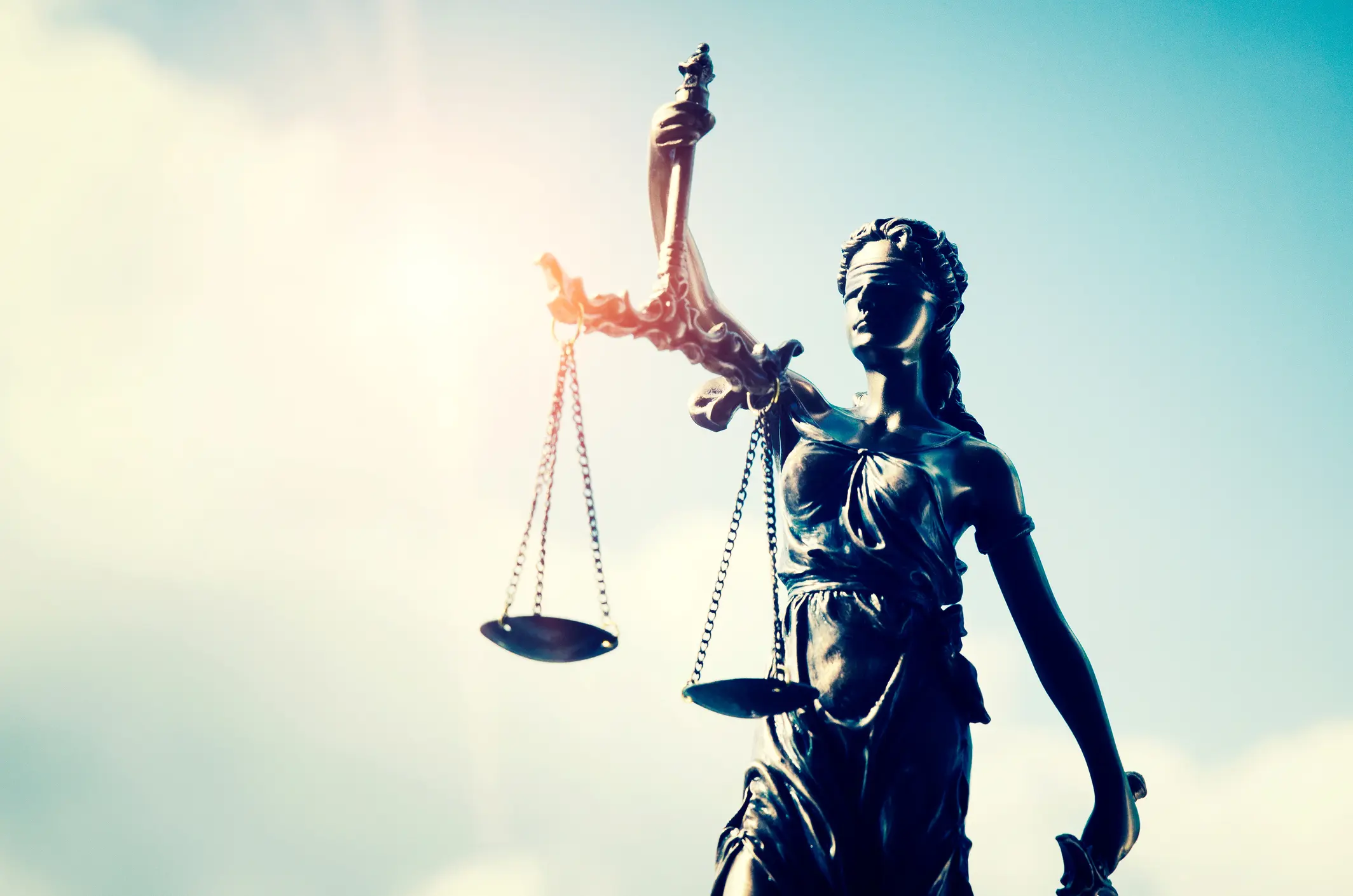This a great question, and we’re going to address it. But let me start by saying, the answer is, “Probably not, and you should be calling a lawyer.”
In this post we’re going to discuss some common myths and misconceptions about lie detectors and give some inside baseball on what’s really going on during a polygraph examination.
Lie detector tests have been the subject of controversy since their introduction in the early twentieth century. William Moulton Marston introduced an early polygraph machine that tested blood pressure and heart rate. (Side note: He also created the comic book heroine Wonder Woman, and her lasso of truth.
Which, incidentally, was much more accurate than his polygraph.) His theory was that subjects would become nervous when lying, and thus would demonstrate increased heart rate and blood pressure.
In 1921, John Larson invented a lie detector he called the Cardio-pneumo-psychogram, that he used with the Berkeley, CA police department. Although Berkeley PD touted their successes with the device, criminal courts were skeptical of their efficacy.
In the U.S. Supreme Court case Frye v. United States, the Court held that polygraph evidence did not meet the standard to be “sufficiently established to have gained general acceptance in the particular field in which it belongs,” and concurred with the lower court’s decision to exclude the “deception test” evidence.
The Frye standard is still used today by many jurisdictions to determine if scientific testimony and evidence should be admissible at trial.
In Colorado, the rule for admissibility of evidence can be found in People v. Schreck. The Schreck case held that Colorado Rule of Evidence 702 is the correct standard to determine if scientific evidence should be admitted by the Court. The Court can also consider other factors such as Daubert factors to determine whether evidence is sufficiently reliable.
How Do Lie Detectors Work?
The lie detector tests of today measure and record several physiological indicators that may be associated with stress responses. Polygraphs can measure blood pressure, pulse, respiration, and skin conductivity while the subject answers a series of questions.
The basic premise is that deceptive answers will produce physiological responses that can be differentiated from those associated with non-deceptive answers. The polygraph then records these physiological changes on a graph, which a trained polygrapher will interpret to determine whether the responses indicate purposeful or knowing deception.
Are Lie Detectors Accurate?
Do lie detectors actually work? The accuracy of lie detectors has been a topic of debate among scientists, psychologists, and legal experts for over 100 years. Polygraph proponents contend that polygraph tests are a useful tool for detecting deception. Some polygraphers claim accuracy rates over 90%.
Critics of lie detectors correctly state that the scientific community at large has not universally accepted polygraphs as a reliable tool. Some scientific studies that suggest the accuracy of polygraphs can be rather low, especially when considering the potential for false positives and false negatives.
The basic principle of a lie detector test is interesting, but the tests are limited by the subject, the accuracy of the instrument and the training and experience of the examiner.
As technology advances, there are opportunities to improve deception detection devices. The recent introduction of Artificial intelligence (AI) to polygraph exams could potentially lead to increased accuracy. One AI based deception detector is called AVATAR (Automated Virtual Agent for Truth Assessments in Real-Time) .
The AVATAR system has been used at border crossings and in airports to detect deception of travelers. It claims to have a rate of 80-85% accuracy. The AVATAR system employs physiological, kinesic, vocalic, linguistic and ocular detection to detect deception, and uses a proprietary AI algorithm to learn for future examinations.
Even with advanced methods like AVATAR, the human element can’t be ignored. Typically, if deception is detected by AVATAR, an alert will notify security screeners that the person should be subjected to additional screenings.
Can You Beat a Lie Detector Test?
I think we’ve all heard rumors that there are sure-fire ways to beat a lie detector test. One common strategy is to employ certain countermeasures to throw off the readings of the machine. The countermeasures can range from physical tactics to mental techniques intended to alter one’s physiological responses during the test.
How to beat a lie detector test?
One common strategy is to flex parts of your body during the initial questions to give an elevated response on baseline questions.
While there is anecdotal evidence of individuals successfully beating polygraph tests, these methods are unreliable and not guaranteed to work.
Moreover, experienced examiners may be trained to detect and counteract such tactics, potentially leading to the test being deemed inconclusive or indicative of deception. A good examiner isn’t just looking for the feedback from the lie detector itself, but also the visual keys and behavior of the subject.
Are Lie Detectors Admissible in Court?
The admissibility of lie detector test results in court varies widely by jurisdiction. The U.S. Supreme Court allows the individual states to determine their admissibility in Court. In Frye v. U.S., a D.C. Circuit Court case took on the admissibility of lie detectors, then called a “deception test”.
The Court found that evidence must be “sufficiently established to have gained general acceptance in the particular field in which it belongs.” In Frye, the Court determined that the lower court was correct in excluding the results of the test as it did not meet the standard.
The Frye standard is still used today in many jurisdictions to determine the admissibility of scientific evidence. Currently, a little less than half of States allow polygraphs to be admitted as evidence in Court.
In Colorado, polygraphs are not admissible at trial. Colorado law follows the Schreck standard which says for scientific evidence to be admissible it must comport with Colorado Rules of Evidence 702, “If scientific, technical, or other specialized knowledge will assist the trier of fact to understand the evidence or to determine a fact in issue, a witness qualified as an expert by knowledge, skill, experience, training, or education, may testify thereto in the form of an opinion or otherwise.”
If polygraphs aren’t admissible in Court, why do Police give them?
Now, this is the big question. Police use polygraphs as an investigative tool. But not always in the way you’re thinking. Police are allowed to lie to you. And they do all the time. The investigative technique is to use the polygraph test to psychologically influence you to talk and provide them more evidence.
Here are a few ways they use the test beyond the actual findings:
- They might use your refusal to take the test to tell you that it clearly means you are lying. They then use this to attempt to get you to talk more about what happened.
- Any questions they ask during the test are to elicit information/evidence for their case. They are looking for admissions and inconsistencies in your statement.
- The post-test interview: Police will tell you that you failed the test (whether you did or didn’t) to get you to talk more and try to get you to, “come clean, because the test proves you are lying.” This technique can be incredibly effective, and I have personally seen it used successfully in cases I handled as a prosecutor.
When in doubt, TAKE THE FIFTH. Tell law enforcement clearly that you want an attorney and that you are exercising your right to remain silent. If you ever find yourself in the position of being questioned by law enforcement, call the best defense lawyer you can afford, and do exactly as they counsel.
Should You Agree to Take a Lie Detector Test?
Whether you should take a lie detector test is an important decision that should not be made without the assistance of counsel. One thing to consider is a private polygraph to see the results outside of the presence of law enforcement.
It can be a useful tool, but I’ve had my clients take private lie detectors less times than I can count on one hand. In a couple of cases, I had my clients pass a private test and show that to the DA as part of the negotiation process that ultimately resulted in a dismissal. However, it is a rare fact pattern in which that this technique will be successful.
The decision where to take a lie detector test should consider understanding of the test’s limitations, the potential for false readings, and the possible outcomes. Most importantly, don’t ever take a polygraph without consulting legal counsel first. An experienced criminal defense attorney can advise you of the potential outcomes and the pros and cons of taking a test.

